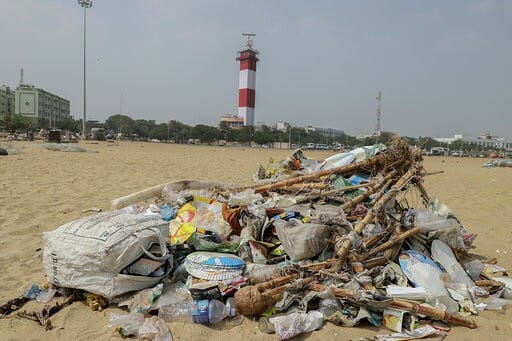City prepares for the third wave
With the third wave of the pandemic being predicted, the civic body has set a target to vaccinate 8 lakh persons with comorbidities. After holding a meeting with the Indian Council of Medical Research (ICMR), the civic body has decided to focus on vulnerable population with comorbidities and tuberculosis patients and pregnant mothers. The corporation has collected data about vulnerable residents and would help them get all assistance at the divisional level.
In view of the third wave, the civic body also plans to start increasing ICU beds and other infrastructure.
Additionally, in a bid to decongest public spaces to prevent clusters, the corporation has begun sealing outlets that violate the Standard Operating Procedures (SOPs).
Source: The Hindu
Tenders for Rs 250 crore worth projects revoked
To ensure the quality of civic projects and improve competition among bidders, the Greater Chennai Corporation (GCC) has revoked tenders amounting to Rs 250 crore.
The two cancelled projects include one on stormwater drains and another on smart poles. The missing link stormwater drain project worth Rs 120 crore funded by the World Bank. The safe city project where 1,600 smart poles with CCTV cameras connected to the police control room and an SOS button for women and children were planned with a budget of Rs 119 crore funded by the Union government.
Activists had expressed concerns about the stormwater drain project in 2019 stating the existing drains were rebuilt and that the linking of drains was not done in all locations.
While checking the specifications of the smart pole project, the corporation engineers found it unfeasible. The alternative plan proposed at present is to develop a mobile application.
Source: The Times of India
Read more: With close to 50000 active cases, why is Chennai unable to ramp up vaccination?
Corporation intensifies dengue drive
Amidst the COVID pandemic, the city has begun recording new cases of dengue fever. Between 1 and 12th July, nine cases have been identified. In the wake of this, the civic body has stepped up dengue prevention measures.
The civic body is auditing houses and other spaces for stagnant water and breeding places for mosquito larvae. As part of this, the corporation is levying penalties in case of the presence of mosquito/larval breeding ground in any premises.
Notices will be given to house owners during the first violation, a fine of Rs 100 will be imposed for the second violation and Rs 200 for the third violation. In the case of apartments, a fine of Rs 500 will be imposed for the first violation, Rs 5,000 for the second and Rs 15,000 for the third violation.
Small shop owners will be fined Rs 500 for first violation, Rs 2,000 and Rs 5,000 for second and third violations. Commercial establishments, government buildings and industries should pay Rs 10,000 for first time violation, Rs 25,000 for second and Rs 1 lakh for third violations.
Source: DT Next | The Times of India
Madras HC questions corporation on Marina upkeep
Madras High Court bench comprising Justices N Kirubakaran and TV Thamilselvi directed the Tamil Nadu government to consider forming an exclusive team chaired by an IAS officer and consisting of officials from Corporation, PWD, Police Department, Councillor and environmentalists, for maintaining Marina Beach.
The bench questioned the Corporation on the money being spent to maintain the beach, delays in setting up a fish market near Loop Road and the lack of restrooms for visitors and other aspects of amenities and revenue.
The court ordered the State and the Greater Chennai Corporation to submit a report on the amount of garbage generated on the beach every day and the actions taken to dispose of it.
Source: The New Indian Express | DT Next
Read more: Plan for smart pushcarts on Marina leaves hundreds in distress
Integrated stormwater drain project kickstarted
To prevent flooding in North Chennai, the civic body has kickstarted the execution of the construction of the integrated stormwater drain (ISWD) network covering 770 km under the Kosasthalaiyar Basin project at a cost of ₹3,220 crore. The project is funded by the Asian Development Bank (ADB).
After analysing the rainfall data of 46 years (1971-2016), the implementing agencies prepared a detailed project report (DPR). The plan recommends the construction of ISWD for 600 km comprising primary, secondary and tertiary drains. Along with the ISWD network, it suggests the renovation of the existing dilapidated drains that run for about 170 km which will prevent water stagnation in Tiruvottiyur, Manali, Madhavaram and Ambattur zones.
According to the DPR, rejuvenating six lakes and 65 water bodies could increase the water storage capacity to 23 million cubic metres as against the present 10 million cubic metres.
Source: The Hindu
